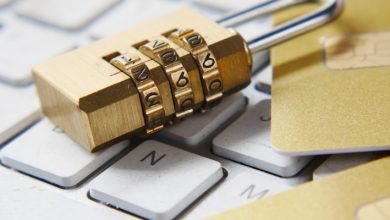What is a Hardware Wallet? Why It’s the Safest Option

- Understanding the importance of hardware wallets in cryptocurrency security
- The benefits of using a hardware wallet over other storage options
- How hardware wallets protect your digital assets from hacking and theft
- Comparing hardware wallets to software wallets and paper wallets
- Key features to look for when choosing a hardware wallet for your cryptocurrency
- Tips for safely storing and using your hardware wallet to maximize security
Understanding the importance of hardware wallets in cryptocurrency security
In the world of cryptocurrency, security is paramount. One of the most important aspects of securing your digital assets is using a hardware wallet. These devices are specifically designed to store your cryptocurrency offline, making them much less vulnerable to hacking and cyber attacks compared to online wallets or exchanges.
Hardware wallets provide an extra layer of protection by keeping your private keys offline, away from potential threats on the internet. This significantly reduces the risk of unauthorized access to your funds. Additionally, most hardware wallets require you to physically confirm transactions on the device itself, adding another level of security.
Using a hardware wallet is crucial for anyone serious about protecting their cryptocurrency investments. The peace of mind that comes with knowing your assets are safely stored offline is invaluable. While hardware wallets may come at a cost, the security they provide far outweighs the price. It’s a small investment to make considering the potential losses that could result from a security breach.
In conclusion, understanding the importance of hardware wallets in cryptocurrency security is essential for anyone looking to safeguard their digital assets. By keeping your private keys offline and adding an extra layer of protection to your transactions, hardware wallets offer the safest option for storing and managing your cryptocurrency. Don’t compromise on security – invest in a hardware wallet today for peace of mind tomorrow.
The benefits of using a hardware wallet over other storage options
There are several benefits to using a hardware wallet over other storage options for your cryptocurrency. One of the main advantages is the enhanced security that a hardware wallet provides. Unlike online wallets or exchanges, hardware wallets are not connected to the internet, making them less vulnerable to hacking or cyber attacks.
Another benefit of hardware wallets is that they offer offline storage for your digital assets, keeping them safe from online threats. Additionally, hardware wallets often come with extra security features such as PIN protection and two-factor authentication, adding an extra layer of protection to your funds.
Furthermore, hardware wallets are easy to use and can be accessed with a simple plug-and-play setup. This makes them a convenient option for both beginners and experienced cryptocurrency users. Additionally, hardware wallets are compatible with a wide range of cryptocurrencies, making them a versatile storage solution for your digital assets.
In conclusion, the benefits of using a hardware wallet over other storage options are clear. With enhanced security features, offline storage capabilities, and ease of use, hardware wallets provide a safe and convenient way to store your cryptocurrency assets.
How hardware wallets protect your digital assets from hacking and theft
Hardware wallets are considered the safest option for storing digital assets because they provide an extra layer of security compared to software wallets. These wallets are physical devices that store the user’s private keys offline, making it nearly impossible for hackers to gain access to them remotely.
One of the main ways hardware wallets protect your digital assets is by keeping your private keys isolated from your computer or smartphone. This means that even if your computer is infected with malware, hackers still won’t be able to access your private keys stored on the hardware wallet.
Another way hardware wallets protect your digital assets is by requiring you to physically confirm transactions on the device itself. This adds an extra step to the process, making it much harder for hackers to steal your assets without your knowledge.
Additionally, hardware wallets often come with features such as PIN protection and backup seed phrases. These security measures help ensure that even if your hardware wallet is lost or stolen, your assets will still be safe and can be easily recovered.
Overall, hardware wallets provide peace of mind for cryptocurrency investors by offering a secure and reliable way to store their digital assets without worrying about hacking or theft.
Comparing hardware wallets to software wallets and paper wallets
When comparing hardware wallets to software wallets and paper wallets, it’s important to consider the level of security they provide for storing cryptocurrency.
Hardware wallets, such as the popular Trezor and Ledger Nano S, are physical devices that store the user’s private keys offline. This means that they are not connected to the internet, making them less vulnerable to hacking attempts. In contrast, software wallets are programs that are installed on a computer or smartphone, which may be susceptible to malware or online attacks.
On the other hand, paper wallets are physical documents that contain the user’s private and public keys. While they are considered secure because they are not connected to the internet, they can be easily damaged, lost, or stolen. Hardware wallets offer a higher level of security compared to software wallets and paper wallets due to their offline storage and encryption features.
In conclusion, when it comes to choosing a wallet for storing cryptocurrency, hardware wallets are the safest option. They provide a secure way to store private keys offline, protecting them from potential cyber threats. While software wallets and paper wallets may be convenient, they do not offer the same level of security as hardware wallets. It’s essential to prioritize security when it comes to managing your cryptocurrency assets.
Key features to look for when choosing a hardware wallet for your cryptocurrency
When choosing a hardware wallet for your cryptocurrency, there are several key features to consider to ensure the security of your digital assets. One important feature to look for is multi-factor authentication, which adds an extra layer of protection by requiring more than one form of verification to access your wallet. This can include a combination of passwords, PIN codes, or biometric data.
Another essential feature is offline storage, which means that your private keys are stored on a device that is not connected to the internet. This significantly reduces the risk of hacking or unauthorized access to your funds. Additionally, look for a wallet that supports a wide range of cryptocurrencies to ensure compatibility with your investment portfolio.
It is also crucial to choose a hardware wallet with a reputable manufacturer that has a track record of security and reliability. Research the company behind the wallet and read reviews from other users to ensure that you are selecting a trusted product. Finally, consider the user interface of the wallet to ensure that it is intuitive and easy to use, making it simple to manage your cryptocurrency securely.
By considering these key features when choosing a hardware wallet for your cryptocurrency, you can ensure that your digital assets are stored safely and securely, protecting them from potential threats and vulnerabilities in the ever-evolving landscape of cryptocurrency security.
Tips for safely storing and using your hardware wallet to maximize security
To ensure the maximum security of your hardware wallet, it is crucial to follow best practices for storage and usage. Here are some tips to help you keep your cryptocurrency safe:
– Store your hardware wallet in a secure location, such as a safe or a lockbox, to prevent theft or loss. Avoid leaving it out in the open where it can be easily accessed by unauthorized individuals.
– When setting up your hardware wallet, make sure to choose a strong PIN code that is not easily guessable. Avoid using common numbers, such as your birthdate or sequential digits, as they can be easily cracked by hackers.
– Regularly update the firmware of your hardware wallet to ensure that you have the latest security features and bug fixes. Manufacturers often release updates to patch vulnerabilities and improve overall security.
– Only connect your hardware wallet to trusted devices when making transactions. Avoid using public computers or unsecured Wi-Fi networks, as they can be compromised by malware or hackers looking to steal your funds.
– Backup your recovery seed phrase in a secure location separate from your hardware wallet. This will allow you to recover your funds in case your wallet is lost or damaged. Make sure to keep this backup phrase confidential and away from prying eyes.
By following these tips, you can maximize the security of your hardware wallet and protect your cryptocurrency investments from potential threats. Stay vigilant and proactive in safeguarding your assets to enjoy peace of mind in the world of digital currencies.



